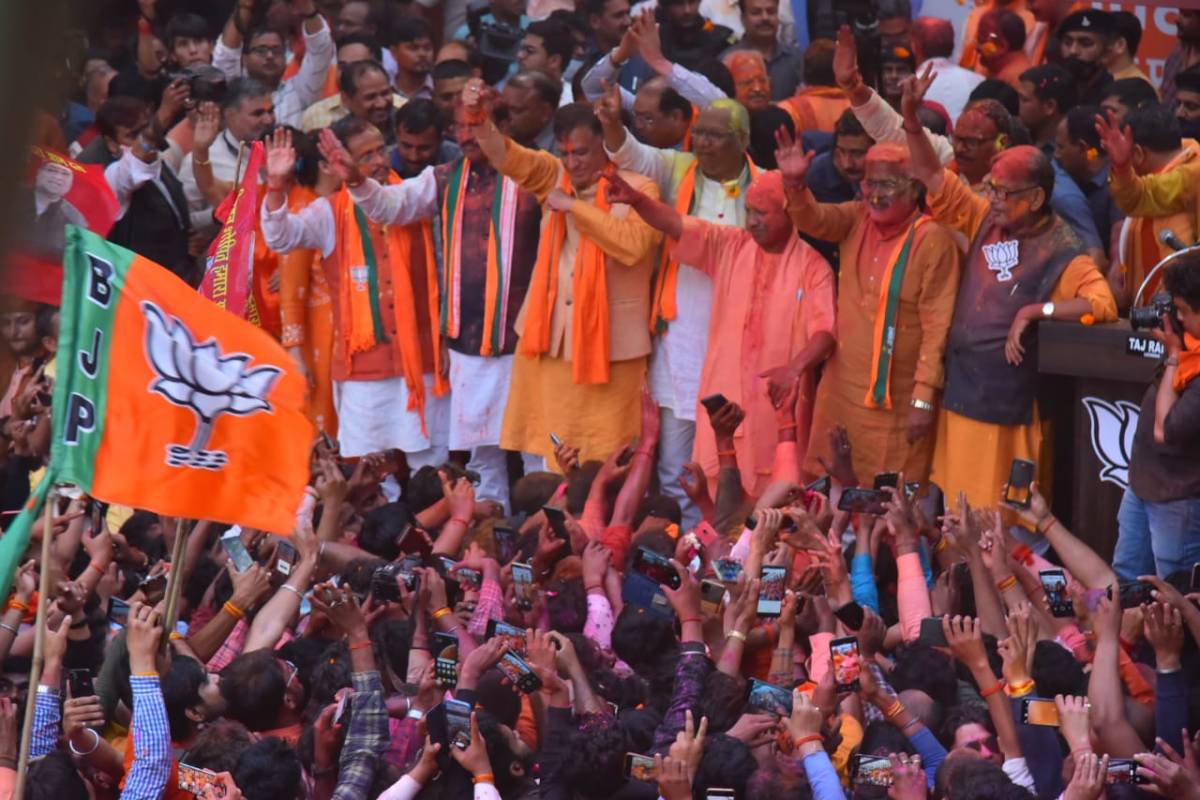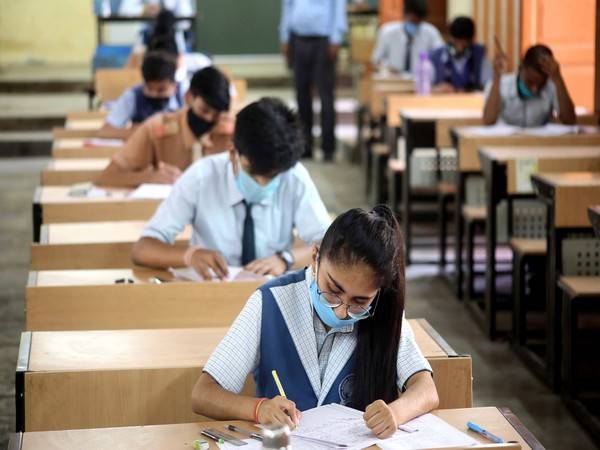The AAP’s broom swept away the ruling Congress in Punjab, which was saddled by incumbency and infighting. The Shiromani Akali Dal (SAD) led alliance and BJP failed to dent the prospects of the Arvind Kejriwal-led party, reports Asian Lite News
The BJP’s lotus bloomed again in Uttar Pradesh and Uttarakhand while AAP’s broom swept away opponents in Punjab as results for five states were declared on Thursday. The BJP also won in Manipur and emerged as the single-largest party in Goa.
In Uttar Pradesh, the saffron party-led alliance is close to winning 270 seats in the 403-member assembly. In Uttarakhand, it is leading in over 40 seats, comfortably above the majority mark of 36.
While the results are the same as in 2017, the “verdict” is slightly different. The BJP is winning UP but the margin is not as handsome as it was in 2017. It had won 312 seats alone in the state in the previous elections.
In Goa and Manipur, the BJP had won fewer seats in 2017 but managed to form the governments. This time, it is the single largest party but hasn’t been able to cross the majority mark yet.
AAP’s big win
The AAP’s broom swept away the ruling Congress in Punjab, which was saddled by incumbency and infighting. The Shiromani Akali Dal (SAD) led alliance and BJP failed to dent the prospects of the Arvind Kejriwal-led party
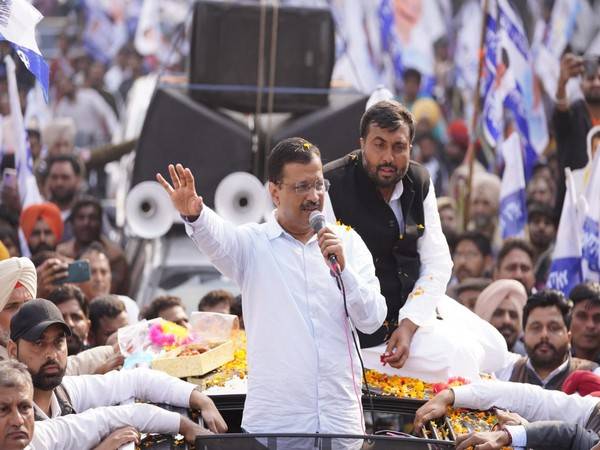
Whether it’s a bigger victory for AAP chief Arvind Kejriwal or its Punjab CM candidate Bhagwant Mann, the jury will be out on that. But the clear mandate in Punjab is sure to stoke the party’s national ambitions, which it had been harbouring since getting its first taste of victory nearly 7 years ago. And while buoyant AAP supporters are busy celebrating Punjab’s victory, there is a somber silence in the Congress ranks.
Congress in a spot
The grand old party, which continues to lose its footprint in India, has lost another state. In Uttarakhand, it failed to take the fight to the BJP despite the saffron party changing its CM not once but twice.
In Manipur and Goa too, the Congress failed to topple the BJP.
And in UP, the party’s spirited women-centric campaign led by Priyanka Gandhi failed to impress the voters with its seat share depleting from 7 in 2017 to 1 in 2022, as per available trends.
Churn in opposition
The electoral landscape of India is more or less the same as it was before the results, save Punjab which has flipped from Congress to Aam Aadmi Party.
But the flip could have a far-reaching impact on national level politics as the vacuum to emerge as the national alternative to the BJP is yet to be filled by any opposition party.
With Punjab now in its kitty, the AAP is in power in two states. Interestingly, the Congress too has only two states to its name where it is in power on its own.
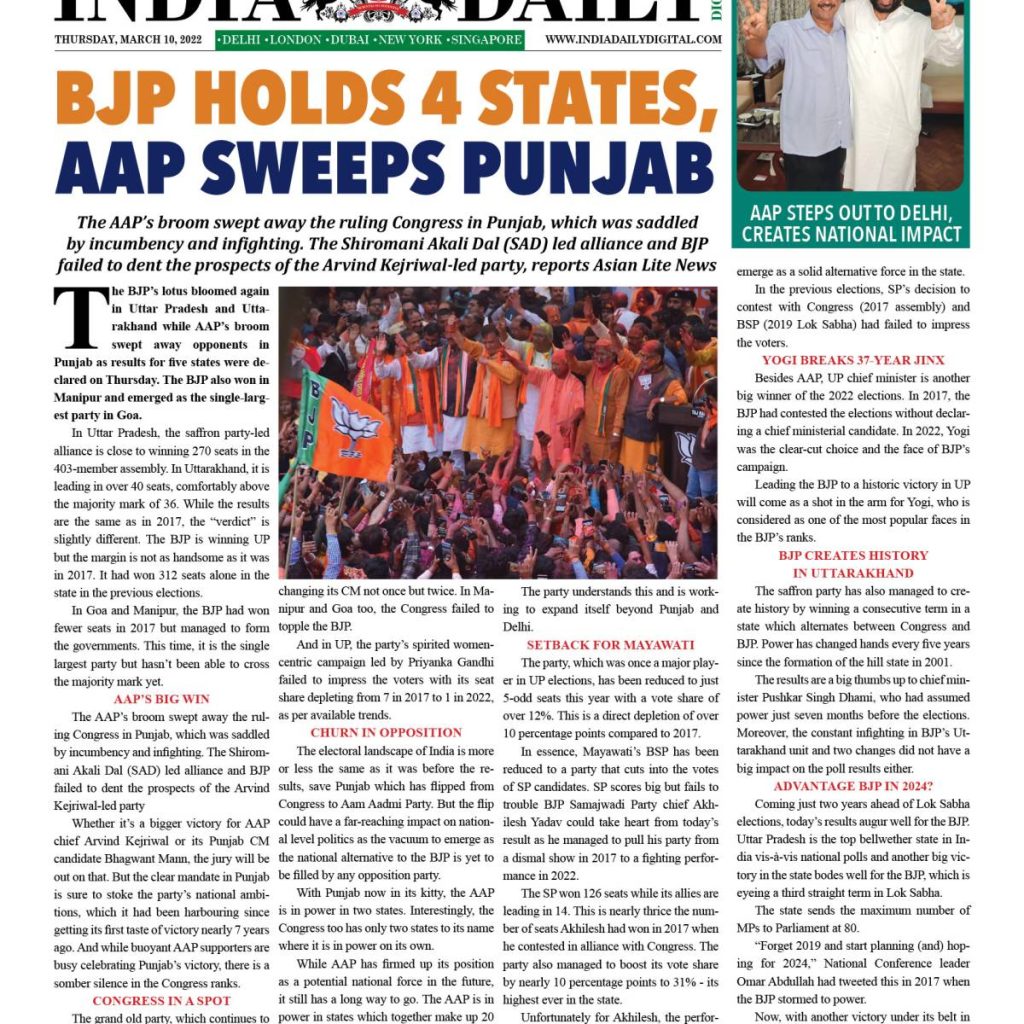
While AAP has firmed up its position as a potential national force in the future, it still has a long way to go. The AAP is in power in states which together make up 20 Lok Sabha seats. The Congress is in power in states that together send 36 members to the lower house.
The party understands this and is working to expand itself beyond Punjab and Delhi.
Setback for Mayawati
The party, which was once a major player in UP elections, has been reduced to just 5-odd seats this year with a vote share of over 12%. This is a direct depletion of over 10 percentage points compared to 2017.
In essence, Mayawati’s BSP has been reduced to a party that cuts into the votes of SP candidates. SP scores big but fails to trouble BJP Samajwadi Party chief Akhilesh Yadav could take heart from today’s result as he managed to pull his party from a dismal show in 2017 to a fighting performance in 2022.
The SP won 126 seats while its allies are leading in 14. This is nearly thrice the number of seats Akhilesh had won in 2017 when he contested in alliance with Congress. The party also managed to boost its vote share by nearly 10 percentage points to 31% – its highest ever in the state.
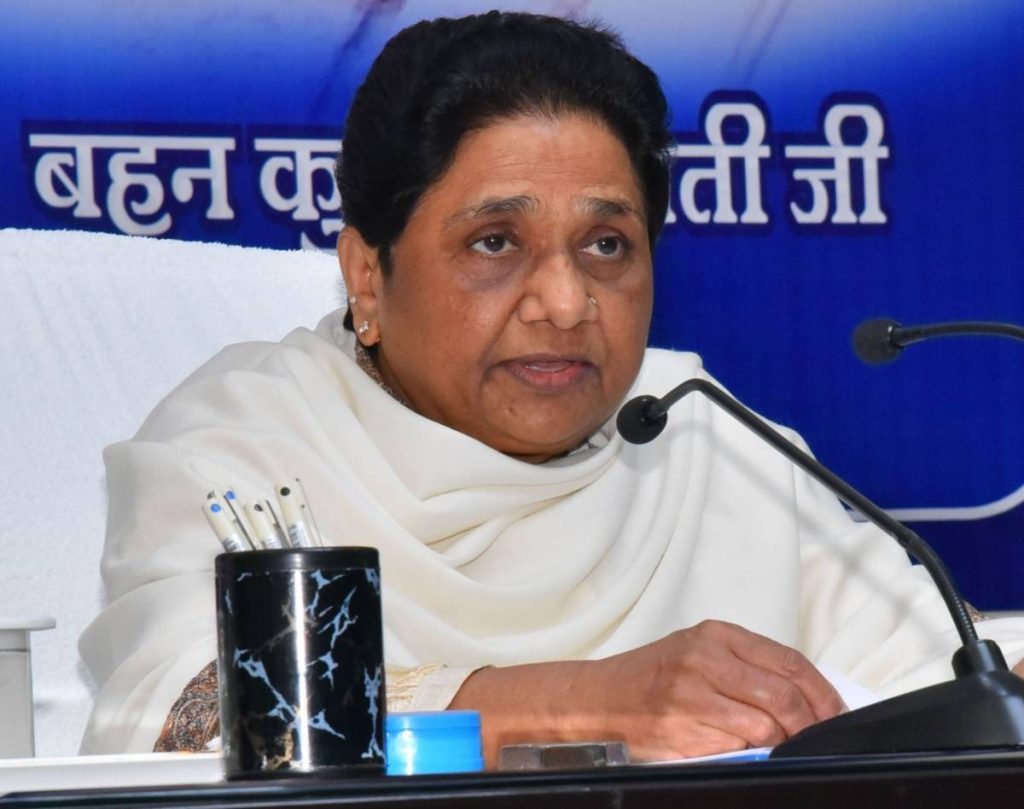
Unfortunately for Akhilesh, the performance wasn’t good enough to topple the Yogi Adityanath-led BJP government. The result, however, could set the stage for SP to emerge as a solid alternative force in the state.
In the previous elections, SP’s decision to contest with Congress (2017 assembly) and BSP (2019 Lok Sabha) had failed to impress the voters.
Yogi breaks 37-year jinx
Besides AAP, UP chief minister is another big winner of the 2022 elections. In 2017, the BJP had contested the elections without declaring a chief ministerial candidate. In 2022, Yogi was the
clear-cut choice and the face of BJP’s campaign.
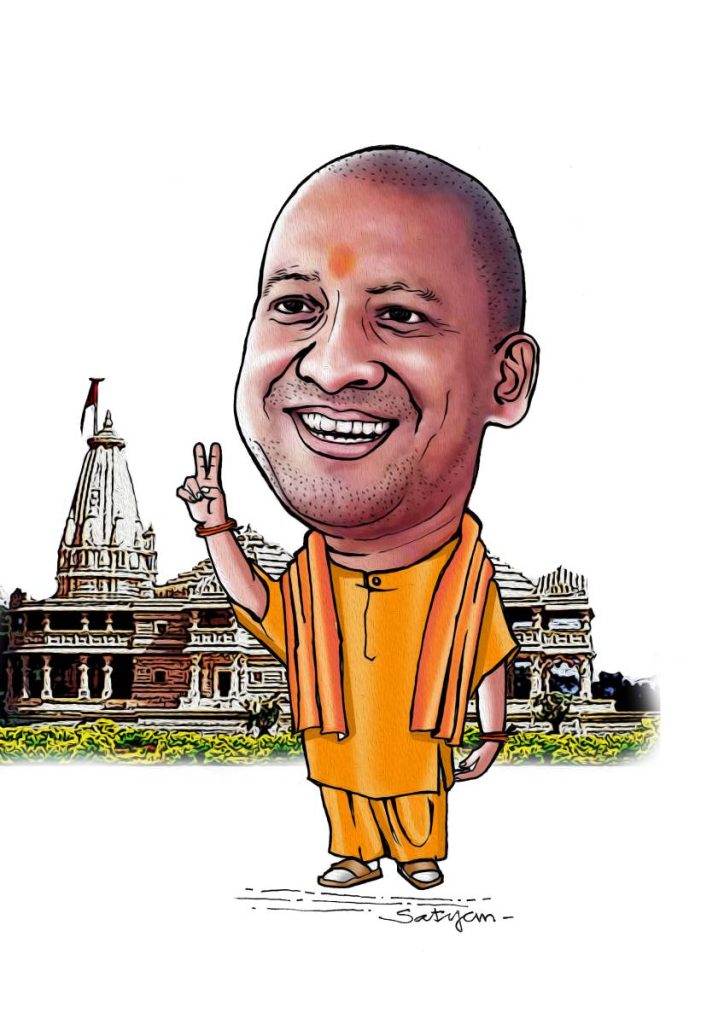
Leading the BJP to a historic victory in UP will come as a shot in the arm for Yogi, who is considered as one of the most popular faces in the BJP’s ranks.
BJP creates history in Uttarakhand
The saffron party has also managed to create history by winning a consecutive term in a state which alternates between Congress and BJP. Power has changed hands every five years since the formation of the hill state in 2001.
The results are a big thumbs up to chief minister Pushkar Singh Dhami, who had assumed power just seven months before the elections. Moreover, the constant infighting in BJP’s Uttarakhand unit and two changes did not have a big impact on the poll results either.
Advantage BJP in 2024?
Coming just two years ahead of Lok Sabha elections, today’s results augur well for the BJP. Uttar Pradesh is the top bellwether state in India vis-à-vis national polls and another big victory in the state bodes well for the BJP, which is eyeing a third straight term in Lok Sabha.
The state sends the maximum number of MPs to Parliament at 80.
“Forget 2019 and start planning (and) hoping for 2024,” National Conference leader Omar Abdullah had tweeted this in 2017 when the BJP stormed to power.
Now, with another victory under its belt in the numerically crucial state, the BJP will find itself on a strong footing as it gears up for the national poll,
Brand Modi bankable
As always, the BJP reaped rich dividends in UP and Uttarakhand by banking on Prime Minister Narendra Modi’s popularity and national appeal.
Besides Yogi, the Prime Minister led BJP’s campaign in Uttar Pradesh and addressed as many as 28 rallies in the seven-phase elections. This was more than the number of rallies he had addressed in 2017.
ALSO READ-FUTURE TENSE FOR CONGRESS

